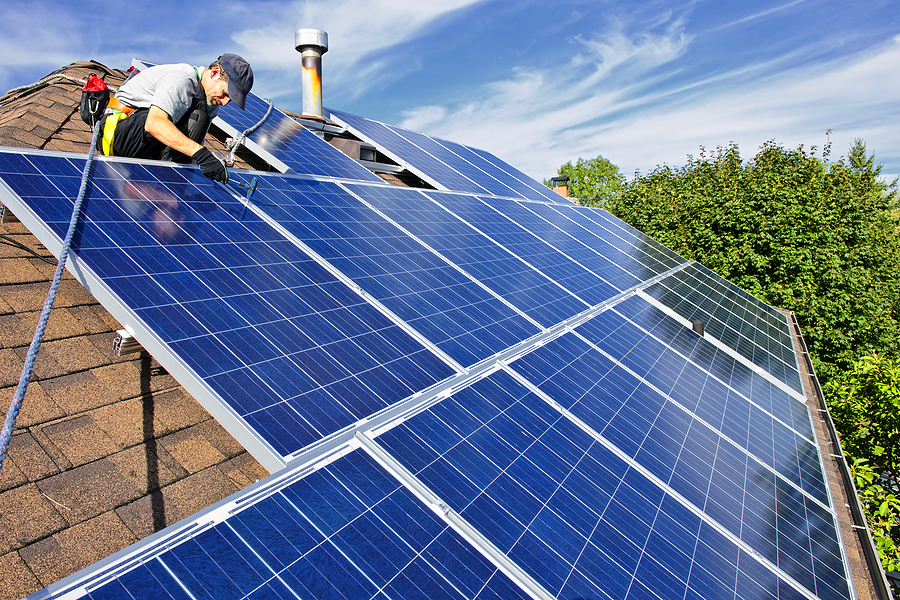The shimmering expanse of solar panels has come to symbolize the bright future of renewable energy. However, as the industry continues to flourish and the world’s solar footprints widen, the pertinent question of what happens to these panels at the end of their lifecycle looms large.
Effectively recycling solar panels is a critical element in the holistic sustainability narrative, and a responsibility shared by industry, government, and consumers alike. In this deep exploration, we’ll dissect the processes, challenges, and actionable steps you, as a steward of the environment, can take toward enhancing the sustainable life cycle of solar panels.

Top Benefits of Recycling Solar Panels
When basking in the glow of the environmental benefits of solar power, the not-so-sunny side tends to get overlooked. The truth is, solar panels contain valuable metals and materials that, if not recycled properly, can pose environmental hazards, and contribute to electronic waste. Solar panels are predominantly made of silicon, tempered glass, and a range of metals, some of which are rare, expensive, and labor-intensive to mine –like gallium, indium, and selenium. Casually discarding these units can contaminate soil and water with toxic substances, notably lead and cadmium.
On the flip side, recycled materials provide a valuable resource for future panels, lessening the demand for new, raw materials. This ‘closed-loop’ approach is quintessential in stemming the tide of e-waste and reducing the footprint left by the clean energy installations we so cherish.
Economic and Environmental Synergies
The cradle-to-grave environmental impacts of solar panels can be quite profound if we aren’t judicious with our end-of-life strategies. Conversely, the economic incentives to recycle are substantial.
> Resource Conservation
Recycling one ton of aluminum, often found in the framing of solar panels, conserves up to 14,000 kWh of electricity. The hefty savings in carbon emissions and energy use speak volumes about the tangible, far-reaching benefits of a robust recycling program.
> New Product Potential
The circular economy model applied to solar panels is more than just a catchy phrase; it’s a blueprint for innovation. The recovered materials can potentially craft new solar panels or fuel a range of industries, pioneering a new age of sustainable product creation.
The Process of Solar Panel Recycling
The transformation from discarded waste to reusable material is an intricate one. Understanding the process provides insight into the challenges and opportunities that come with this Eco-responsible endeavor.
> Collection and Dismantling
The first step is often the most critical – collecting panels from the myriad sources they may originate. Dismantling must then be carried out with precision to prevent any cross-contamination and ensure the purity of materials.
> Recovery and Reuse
Sophisticated recovery methods are employed to separate out the valuable elements. High-quality glass and silicon can be reused within the panel industry, while metals like copper and silver find homes in other industrial applications.
Challenges and Innovative Solutions
Our march toward sustainability is not without obstacles. Discussing these roadblocks is vital to fostering a community of innovators and problem solvers dedicated to cracking the sustainability code.
> Technological Hurdles
Some of the issues impeding progress include lack of standardized dimensions across panels, which complicates automated sorting, as well as the efficiency of separation processes for certain materials.
> Policy Implications
Matters of policy are inherently wed to industry practices. We must lobby for regulations that encourage manufacturers to design with recyclability in mind, and for incentives that support the promising solar recycling industry.
> Cutting-Edge Approaches
Human ingenuity stands as our best defense against the environmental challenges we face. Pioneering companies are developing new chemical and mechanical processes to extract and refine the raw materials for reuse.
How Homeowners Can Contribute to Solar Panel Recycling
The onus of sustainability is not solely on the producers; individual actions aggregate to form a powerful force in the fight for a greener planet.
> Proper Disposal Guidance
Educating consumers on their role in the lifecycle of their solar panels is paramount. Knowing where to recycle, or how to prepare panels for collection, empowers homeowners to align their green intentions with effective action.
> Advocacy for Industry Standards
Be vocal about your expectations for product longevity and recyclability. Your voice, when amplified by others, becomes a chorus to which companies must listen, driving them to implement more sustainable practices.
> Supporting Local Programs
The environmental and economic benefits of supporting local recycling programs are considerable. Engage in your community, encourage and participate in local recycling initiatives, and witness the difference grassroots action can achieve.
Wrapping Up
The sustainable disposal and recycling of solar panels stands as a sentinel of our commitment to a renewable, responsible energy future. Each step, from carefully considering the materials that comprise our panels, to advocating for industry reform, contributes to the larger narrative of sustainability. The overarching message is clear – the progress of solar energy and environmental stewardship is inextricably linked, and our diligence in ensuring the life cycle of solar panels is as sustainable as the energy they produce, is our collective responsibility.
Do you have old solar panels you would like to recycle for an instant cash payout? Prepare to enter the world of global sustainability! Contact us at 317-244-0700 for professional and hassle-free scrap metal recycling services in Indianapolis, Indiana. Aside from solar paneling, we also accept appliances, electronics, vehicles, car parts, and much more.
Related Posts:
6 Benefits of Recycling Your Electronic Waste
The Environmental Benefits of Scrap Metal Recycling
Exploring Earth’s Treasures: Top 10 Unique and Fascinating Metals
